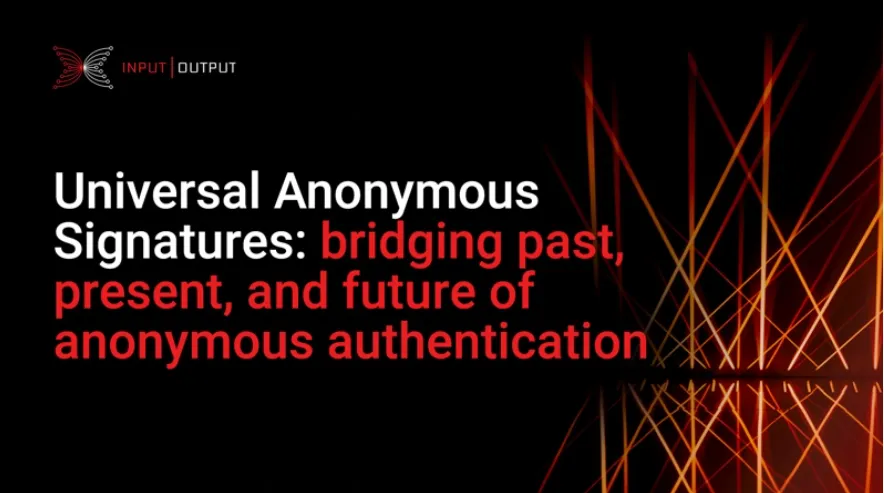Cardano Summit Day 1 Recap: Beyond Redefining Finance
Day one of the Cardano Summit 2024 just wrapped up, and we wanted to share a quick recap of all that happened!

Day one of the Cardano Summit 2024 just wrapped up, and we wanted to share a quick recap of all that happened!
Day 1 of the Cardano Summit 2024 kicked off with opening remarks from Frederik Gregaard, CEO of the Cardano Foundation, who set the tone for this week’s event by stating: We are fighting for a world where everybody has equal opportunity – economic opportunity to build an identity, to verify digital trust and a collaborative economy powered by cryptographic evidence.
During a talk between CEO of Binance, Richard Teng, and CEO of Cardano Foundation, Frederik Gregaard, the pair delved into strategies for building resilient, high-performing organizations in the blockchain space. Compliance remains at the forefront for both crypto leaders, they emphasized the importance of regulation for institutional adoption, with Binance investing heavily in their compliance program. CNBC journalist and moderator May Ben Khadra touched on the potential convergence of AI and blockchain, the UAE's role in embracing emerging technologies, and the impact of the US election on the industry. Both speakers remained positive on crypto assets, citing increased institutional involvement and the evolution of blockchain technology as a foundational layer for future innovations.
While discussing cultural connections at the intersection of music, gaming, and blockchain technology, Sheldon Hunt from EMURGO explained the reality is the first billion organic users of Web3 are going to join for the fun out of it, i.e., for games and not a triple staking defi protocol. He added that users need to have fun and connect to people. Animoca Brands Chairman and Co-Founder Yat Siu chimed in on his point stating that gaming is the utility way of creating mass adoption, but from an umbrella view, it’s storytelling. Gaming is a medium for the youth of today, and that is how we bring in mass adoption.
A panel on Accelerating Blockchain Adoption in Enterprise: What are the Key Product Drivers discussed the opportunities and challenges around implementing the technology. Cardano Foundation’s Alex Apeldoorn spoke about Cardano's design principles, citing they are designed around robustness and availability. CNBC Journalist and moderator, May Ben Khadra, questioned the differences between the government and the private sector when implementing blockchain. Dr. Bernhard Kronfellner Partners and Associate Director of The Boston Consulting Group (Austria) GmbH responded by stating that for government, it means looking at your citizens’ needs, and for enterprises, it is a matter of looking at revenue.
Public and private collaboration in Web3 was discussed by key members of the UAE crypto ecosystem and led by moderator Ben Weiss from DL News. Capt. Eng. Mohammad A. AlShamsi of Dubai Police and Behrang Ravari, Co-CEO & Co-Founder at SAT, explained how they bridged interoperability through using Cardano to track ballistic activities. Dominik Nagiller at Scantrust shared that partnerships are key in bringing this new technology to the public sector, while it may take time to build, partnerships are the most effective way to work across sectors on collaboration. Belal Jassoma at DMCC added that the Dubai government is collaborating with enterprises by adding blockchain to the national agenda.
On a panel titled UAE Roadmap to Blockchain Adoption, Dr. Sameer Al Ansari explained that the UAE recognizes that fostering blockchain growth requires a comprehensive approach, including establishing clear regulations, developing necessary infrastructure, and creating a secure and welcoming environment for businesses and individuals to operate within the blockchain industry.
Over on the pitch stage began “Battle of the Builders,” a special competition where the top ten early-stage Cardano startups will speak to industry experts and potential investors, giving them extra visibility for their projects. Stay tuned for Day Two to see the winners announced.
While discussing how crypto exchanges are transforming accessibility and empowering users to engage with digital currencies, Meera Judge, Director of Regulatory and Licensing and Policy at Binance, highlighted Binance’s efforts to collaborate with regulators, focusing on educating them throughout the regulatory licensing process. Tala Tabba, CEO of CoinMENA, emphasized the importance of educating users on the complexities of crypto and bridging the gap between traditional finance and decentralized finance. Meanwhile, Daniel Carneito Da Cunha, EVP of Corporate Development at Mercado Bitcoin, explained that while most scalable use cases in crypto have been finance-related, technology will now play a larger role in enabling smarter use cases as the ecosystem reaches critical mass.
The Redefining Industries: The Power of Blockchain in Supply Chain panel discussed the growing impact of blockchain technology in supply chain management. Jürgen Kleeberge, Managing Partner of Disruptive Elements, highlighted real-world use cases, such as verifying the authenticity of materials and tracking CO2 footprints to ensure sustainability. Ali Katkhada, Group Chief Information Officer, DEPA United Group P.J.S.C., emphasized how blockchain enhances transparency and accountability at every step, noting that many companies already leverage their supply chain management processes. Sergi Martin, Managing Director of Plastiks Token, explained that blockchain’s immutable data fosters trust that companies using the technology provide accurate and reliable information at every stage of the supply chain.
The day concluded with a keynote given by Don Tapscott, Executive Chairman and CEO, Blockchain Research Institute (BRI), discussing the power blockchain has to reshape our future across five key areas: DeFi, DePIN, DeSci, arts, and planetary challenges. Don argued that, while everyone is talking about the “redistribution of wealth,” we should and can “pre-distribute wealth.” According to Tapscott, by decentralizing our economy, more people will participate in the economy and share the wealth they create. This is important because it changes the nature of the enterprise so that shareholders and workers are no longer different people – they all become stakeholders.
SNEKbot by DexHunter on CARDANO
Cardano's Telegram Trading Bot live on Cardano mainnet!TRADE NOW!







